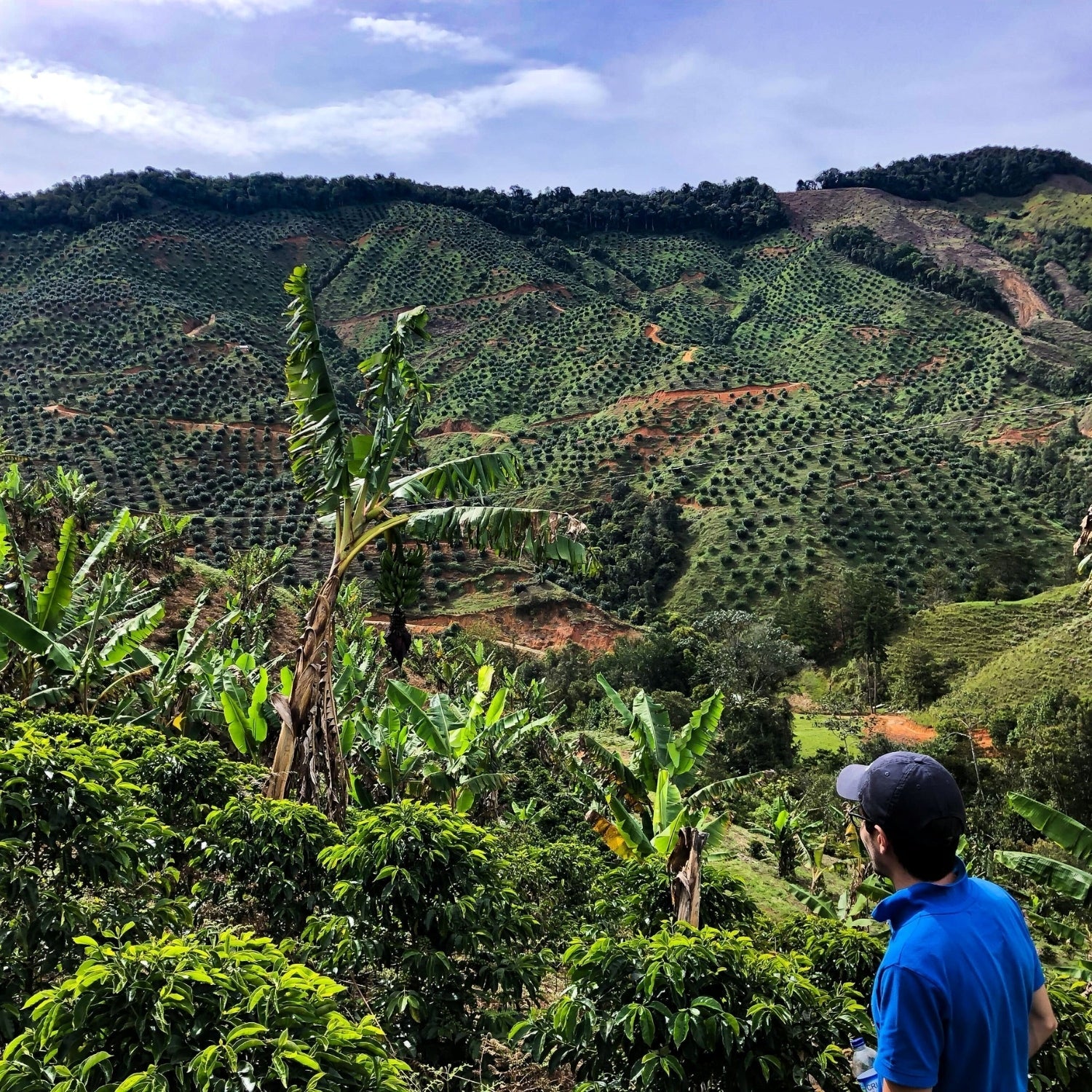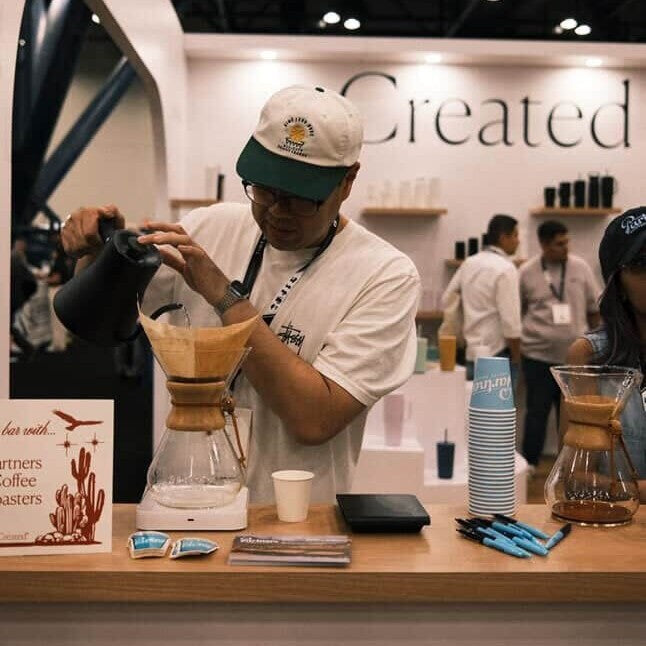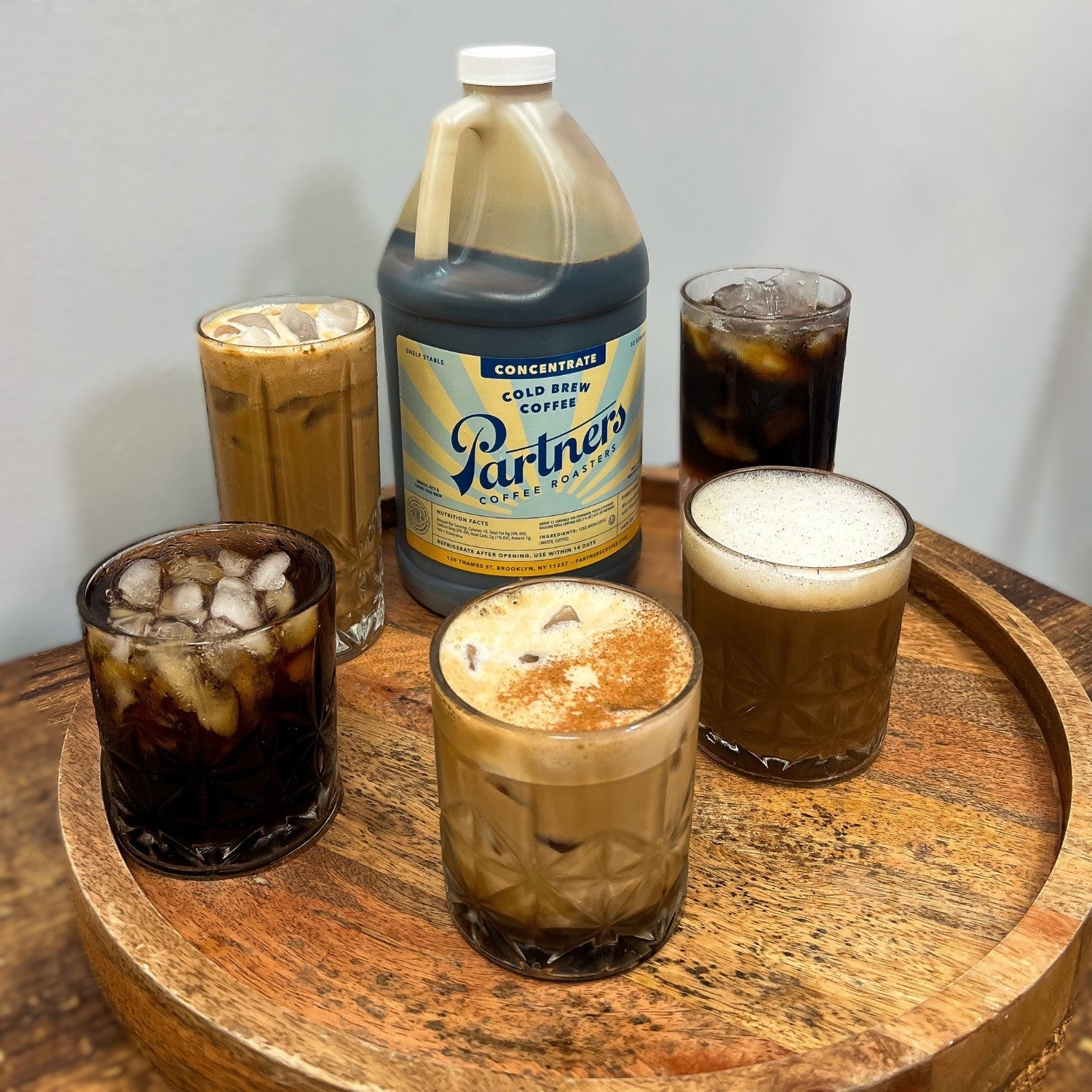Urrao lies within the valley of the Penderisco River, some 100 kilometers northwest of Medellín. The drive there is a breathtaking series of mountain passes above valleys that seem so impossibly vast it's easy to perceive the Andes as somehow otherworldly. Within four hours you'll arrive in Urrao to discover that the town sits within a cool and lush valley floor at 1,900 meters. In this strange place, coffee grows best at some of the lowest elevations.
Urrao is home to a variety called chiroso, once known to us as caturra chiroso. The name is Colombian slang for something that is a little stretched out, often referring to something like an old t-shirt, and maybe derivative of achiras, a popular Colombian snack with a similar shape. Thought originally to be a locally-occurring mutation of the caturra commonly planted in the area, the variety has a few unusual physical traits - most notably, elongated fruits and seeds.
According to lore a farmer from Urrao was visiting another farm an hour or so south where he noticed some coffee plants that looked unusually productive despite the region's cold weather. He brought seeds back and shared them with a few neighbors, including Doña Carmen Montoya ("the godmother of chiroso" and a longtime coffee producer in Urrao). She then shared seeds with her own neighbors, and in time, much of the coffee grown in Urrao was caturra chiroso.
Years later a coffee from Urrao entered as simply "caturra" performed very well in the Cup of Excellence - a competition that no coffee from Antioquia, let alone Urrao, had ever taken first place in. This caught the attention of Pedro Echavarría of Pergamino, our longtime sourcing partners in Colombia. Pedro's enthusiasm for chiroso is infectious and we have him to thank for our obsession. (Pedro's own chiroso from Finca Lomaverde is a recurring component of Block Party and El Ramo.)
More recently, the Pergamino team has shared with us new evidence suggesting that chiroso is not actually related to caturra - or any other known variety in the Americas. It seems instead to be an uncatalogued Ethiopian landrace variety or a close descendant of one. How it arrived in this remote part of Colombia is mysterious, but calls to mind similar stories told of other sought-after varieties like gesha, pink "bourbon", sidra, and mejorada.
This is our second year buying David's coffee in isolation and its first appearance on our single origin menu. His farm, El Rosal ("the rosebush") is located in the community of La Despensa near the convergence of the Pavón and Penderisco rivers. Situated at 1,900 meters, the farm is planted entirely with chiroso, totaling about 2,200 plants.
David follows processing and drying protocols typical of the region, including the rather unique practice of combining multiple days of picking into a mixed, extended fermentation (with some portion of each batch fermenting for 72 hours, some 48 hours, and so on). Once fermented and washed, the coffee is moved to covered, parabolic drying tables where it dries within about two weeks. Together, these practices are well suited to the region's relatively cold and wet weather.
We're excited to offer David's coffee and thrilled to have another opportunity to share this spectacular variety.
Ready for a cup of excellence?
TASTING NOTES
Watermelon, Cane Sugar, Lime
ROAST LEVEL
Light
PROCESS
Washed
VARIETY
Chiroso
REGION
La Dispensa, Urrao, Antioquia
ELEVATION
1,900 masl
PRODUCER
Fray David Moreno Montoya
SOURCE
Finca El Rosal








Leave a comment
This site is protected by hCaptcha and the hCaptcha Privacy Policy and Terms of Service apply.